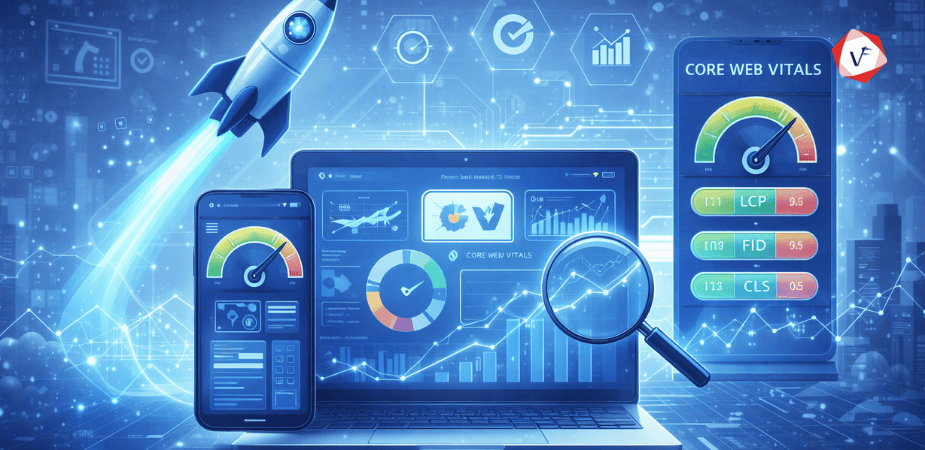- May 09, 2025 6:13 pm
- by Safvana
- May 09, 2025 6:13 pm
- by Manek

Healthcare providers collect a lot of information every day, from patient medical records to diagnostic tests. This data is critical for making informed decisions, ensuring patient safety, and improving overall healthcare services. However, managing this data manually can be complex, time-consuming, and prone to errors. This is where health data management (HDM) comes in.
Health data management refers to the process of collecting, storing, organizing, and analyzing healthcare data in a secure and efficient manner. It involves using advanced technology to streamline how data is handled, ensuring that healthcare providers can access accurate and up-to-date information when needed. This blog will explore what health data management is, why it’s important, its components, challenges, and how it helps improve healthcare outcomes.
Effective health data management is vital for providing high-quality healthcare services. There are several reasons why managing health data well is essential.
1. Better Patient Care Health data management allows healthcare providers to have quick access to a patient’s complete medical history. This is crucial for making accurate diagnoses and providing appropriate treatments. With a digital record, doctors and nurses can easily see previous conditions, allergies, medications, and test results, which leads to better decision-making and, ultimately, better care.
2. Streamlined Operations Managing health data manually takes time and can slow down healthcare operations. With automated systems, healthcare providers can reduce the time spent on paperwork and focus more on patient care. Using Electronic Health Records (EHRs), hospitals and clinics can speed up processes like patient registration, scheduling, billing, and clinical workflows.
3. Cost Efficiency Efficient data management helps healthcare organizations reduce operational costs. By eliminating paper-based systems and reducing human error, healthcare providers can avoid costly mistakes. Digital health data management systems also help optimize resource usage, ensuring that the right materials and staff are available when needed.
4. Regulatory Compliance Healthcare providers are required to follow strict regulations, such as the Health Insurance Portability and Accountability Act (HIPAA) in the U.S. These regulations are designed to protect patient privacy and ensure that health data is securely handled. Health data management systems ensure that organizations meet these requirements, preventing legal issues and protecting patients’ rights.
5. Informed Decision-Making Having access to accurate and well-organized data helps healthcare providers make better decisions. With insights from data analysis, doctors can identify trends and predict patient needs more effectively. This also helps researchers and public health officials track disease outbreaks, identify patterns, and improve healthcare practices.
Health data management is not just about storing data but involves several critical components that work together to ensure data is accessible, secure, and useful.
1. Data Collection The first step in managing health data is to collect it. This can include data from a variety of sources:
2. Data Storage
Once data is collected, it needs to be stored securely. This is where health data management systems come into play. Healthcare organizations store data in two main ways:
3. Data Retrieval and Access One of the main goals of health data management is to make sure data is easily accessible. Healthcare providers need to access the right information at the right time. This is typically achieved through systems like:
4. Data Sharing and Interoperability
In many cases, healthcare data needs to be shared between different organizations, departments, or providers. For example, a doctor may need to share a patient’s health information with a specialist or a laboratory. For this to happen seamlessly, health data systems must be interoperable. This means that different systems can communicate and exchange information effectively.
Interoperability is facilitated by using standards such as HL7, FHIR (Fast Healthcare Interoperability Resources), and DICOM (Digital Imaging and Communications in Medicine), which help standardize how data is shared between systems.
5. Data Security and Privacy Health data is sensitive information, so keeping it secure is a top priority. Organizations must follow strict protocols to ensure that data is protected from unauthorized access, theft, or breaches. This can be achieved through:
Despite the clear benefits, managing health data comes with its challenges.
1. Data Security With the rise of cyberattacks on healthcare organizations, protecting sensitive patient data is a major concern. Data breaches can lead to financial losses, legal issues, and damage to a healthcare organization’s reputation.
2. Data Accuracy Health data needs to be accurate to ensure proper patient care. However, data entry errors, miscommunications, or outdated information can compromise the quality of care. Ensuring that data is accurate, up-to-date, and consistent across all systems is an ongoing challenge.
3. Interoperability Issues Healthcare organizations often use different software systems, making it difficult to share data between them. Lack of interoperability can slow down processes and lead to inefficiencies in care delivery.
4. Regulatory Compliance Healthcare providers must comply with various regulations regarding patient data privacy and security. Keeping up with these regulations and ensuring systems remain compliant can be complex and time-consuming.
5. Managing Large Volumes of Data As healthcare generates more data through patient visits, diagnostic tests, and wearables, managing large amounts of data can be overwhelming. Healthcare providers need systems that can store, process, and analyze data effectively to gain valuable insights.
The future of health data management is looking bright, with several advancements on the horizon:
1. Artificial Intelligence and Machine Learning AI and machine learning technologies will help healthcare providers predict patient outcomes, identify trends, and improve decision-making. These technologies will play a big role in making health data management more effective and insightful.
2. Blockchain Technology Blockchain has the potential to revolutionize health data security. By creating an immutable ledger of data, blockchain can ensure that health data remains secure and transparent, preventing tampering or unauthorized access.
3. Telemedicine and Remote Monitoring With the rise of telemedicine and wearable health devices, healthcare data is increasingly being generated outside traditional healthcare settings. Managing this data securely and effectively will become even more important as remote patient monitoring grows.
Health data management is a crucial part of modern healthcare. It involves organizing, storing, securing, and analyzing patient data to improve patient care, streamline operations, and ensure regulatory compliance. Effective health data management systems help healthcare providers make informed decisions, reduce costs, and enhance patient outcomes.
Despite the challenges, such as data security concerns and the need for interoperability, advancements in technology are making it easier to manage health data efficiently. As we look to the future, health data management will continue to evolve, helping healthcare providers deliver better care, improve patient outcomes, and navigate the complex world of healthcare regulations.
Guaranteed Response within One Business Day!
What is Infrastructure as Code (IaC)?

Front-End Performance in 2026: What Core Web Vitals Actually Mean for Your Site

What is FinOps?

Micro-Frontends: Breaking Down Monolithic React Applications
.png)
Zero-Trust Security Models for SaaS: What You Need to Know